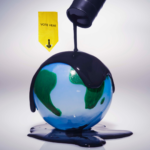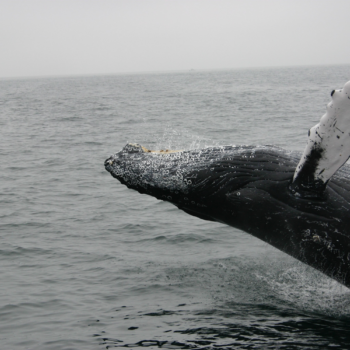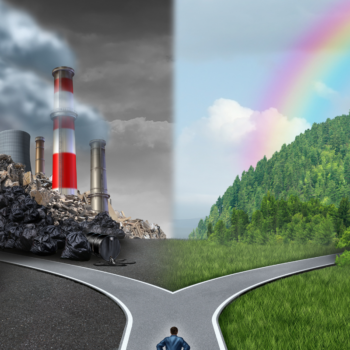|
|
If you searched “climate change” or any related terms in the last few days you would notice one common point at the top of page one: Bill Gates.
You may like what he says, you may hate it. I don’t care either way.
Am I the only one who’s simply tired of watching media treat a computer programmer like a qualified expert in science?
Busy? Try the speed read.
The scoop: Bill Gates published a new book about climate change. Why are we praising a tech entrepreneur pretending to be a scientist and public health official?
Why it matters: I think people like Bill Gates make everyday people more suspicious of actual science. Gates should step aside and let real scientists do the talking. Because as it turns out, he isn’t always right.
My proposal: Let’s praise and highlight actual climatologists dedicated to the field. He’s not even a professional writer.
We need to build communication platforms for researchers, doctors, and scientists to bridge the gap between complex subject matter and public skepticism. Businessmen like Bill Gates only widen the gap (imo).
Bottom line: Let’s hear the talking points not from some obscure monolithic gospel, but science-backed, distinguished talking points from recognizable human faces.
Dig deeper → 3 min
Somehow, a tech entrepreneur notorious for ruthless business practices in the nineties has propelled himself into authority status on technical subjects like epidemiology, vaccinology, and climatology.
The Microsoft-founder turned global philanthropist released a new book last week entitled “How to Avoid a Climate Disaster: The Solutions We Have and the Breakthroughs We Need“, and he’s been on the PR circuit ever since.
I know Gates has a team of experts. I know he often is speaking on behalf of his team of experts. But something about an unqualified billionaire lecturing us directly about what we need to do to fight climate change comes off as a little ironic.
Why should he be the one to tell the world if government or industry can make a greater difference on climate? Maybe it would be easier to look the other way if he wasn’t so far off. As Bill McKibben of the New Yorker notes,
He did a great review of Gates’ new book you can find here.
Gates may be well-intended, but he is not well-equipped. When a journalist covers science or medicine, they are investigating, criticizing transparency or ethics or admittedly spectating.
That’s not what Gates does. The way the media covers him, it feels more like an appeal to authority, a collective microphone point to a faux-white coat.
Science in the age of professionalism
Gates invested $2 billion toward climate initiatives. Scientific research guides his Venture team. But why do I care about Gates’ book? In the age of professionalism, we have to distinguish between authority by skill and authority by wealth.
The only scientific leg Gates has to stand on is through the medium of money and power. Gates should be listening, not talking. He should be directing his influence to qualified men and women verified to speak on complicated subject matter. I never want to hear him speak alone.
The role of the media in Bill Gates climate-ism
In his interview with GeekWire, the interview alludes to his new book and asks ‘why him’. But doesn’t really answer it. Everyone is entitled to have their opinion, but for a scientific topic as abstract and polarizing as climate change, we need to start weeding out the quasi-experts.
Why does the media question Bill Gates about public health and climate science? Has he studied these subjects? Why not interview the research team lead?
Bill Gates is not an authority on such matters as climate. He is a businessman with a foundation. That’s it.
Gates, stop blabbing your mouth. Started doing what you do best: pay people to do the work for you. But the pandering media coverage doesn’t stop.
As MSN writes in their article,
In a recent interview with Anderson Cooper for “60 Minutes,” Gates warned that unprecedented levels of scientific breakthroughs, technological innovations, and global cooperation are needed in the next 30 years to prevent a catastrophic rise in temperatures.
“It’s not easy. But hey, we have 30 years,” Gates said to Cooper, adding that innovations are needed in every aspect of life from manufacturing, agriculture, transportation to combat the crisis.
We have 30 years to prevent catastrophe according to what finding? Did you just make that number up?
We are fact-checking everything, I thought… and you aren’t even qualified to provide the answer. You tell Americans to eat 100% synthetic beef while you eat real meat. You tell Americans not to fly regularly then invest in private jets.
It may be five years, ten years. Listen, maybe I’m being a little harsh. And little facetious. I’m sure there are billionaires far worse off than Bill Gates.
Improve communication between science and people, please
I just want authoritative voices speaking on topics that demand such voices. I don’t care about what he says. It’s about the person behind the talking points. Let’s build transparency. Let’s see the faces. Bill Gates divides, he does not unite. Not because of what he’s saying, but because of who he is.
The real solution? Build more communication platforms for researchers, doctors, and scientists. Then, we can hear the talking points not from some obscure monolithic gospel, but science-backed, distinguished talking points from recognizable human faces.













No Comments